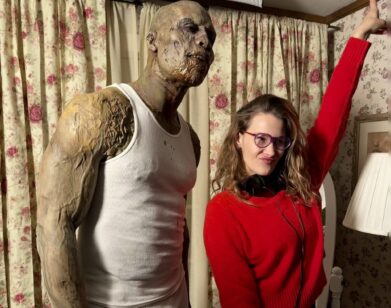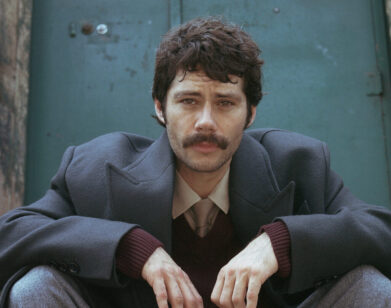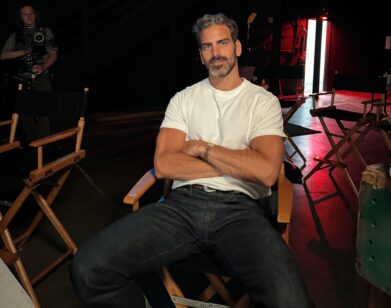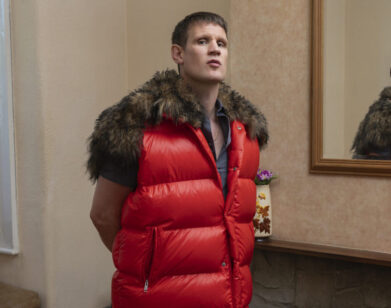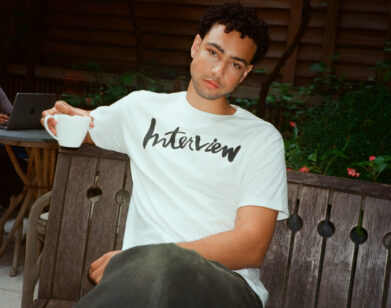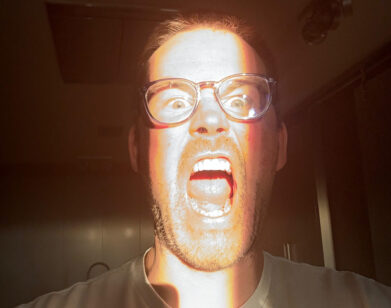Patricia Clarkson’s Jury Duty
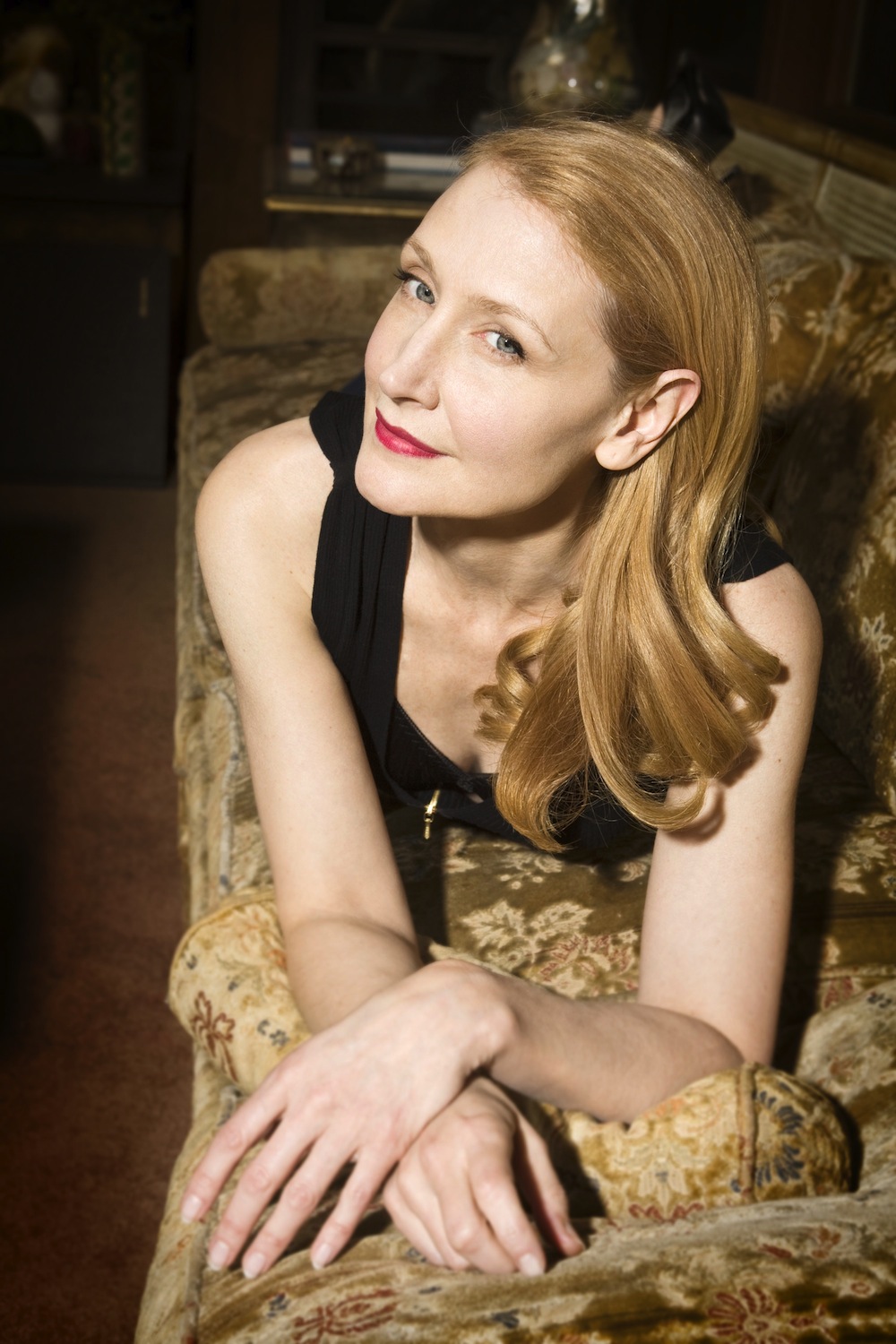
PHOTO COURTESY VERONIQUE VIAL
Patricia Clarkson gets it. The 53-year-old actress, who has amassed a CV counting films directed by Todd Haynes, Woody Allen, and Martin Scorsese, a turn on Alan Ball’s cult HBO show Six Feet Under, and an appearance with Andy Samberg and Justin Timberlake in “Motherlover,” the follow-up to SNL‘s digital short “Dick in A Box,” has established herself as one of the most versatile actresses of her generation.
But Clarkson, for every carefully selected role she takes on, manages to keep things interesting. She’s emerged as a thinking person’s sex symbol, taken on drama and comedy, and continues to challenge herself with roles that jump genres, class, and age. It’s perhaps these qualities that caused the Marrakech International Film Festival to choose Clarkson as a jury member for this year. On the occasion of the festival’s opening, we caught up with Clarkson to talk about working with first-time directors, action movies, and what’s in store for Marrakech.
COLLEEN KELSEY: I know you’ve sat on a jury before, but as someone who has spent their career in front of the camera, I’m curious as to what your relationship is with film as a viewer, and in the situation of a jury, as a critic.
PATRICIA CLARKSON: At the core, I am an actress. And I think, in a way, that’s a good thing in that I am, I think, empathetic and sympathetic to the film. I would never pretend to have the discerning and acute critical eye that a lot of the great critics in our business do have. I don’t look at it as being a critic or placing a judgment on a film, and I do think, how do you decide which film is best anyway? It’s always a little bit of a mixed bag. But, I think it is just a collective group of people coming together to honor the work of an artist—that’s how I think of it. I’ve been on Sundance, I was the head of the London Film Festival jury three years ago, I was just on Tribeca two years ago, and it’s like picking your favorite child—it’s very difficult. But in the end, what is beautiful, is that you do honor the work of a great artist, and it doesn’t mean that the other artists are not terrific, it’s just the film that moved you the most, took you on the deepest journey, made you laugh. That’s what I’m looking for, is that film that is going to take me to unexpected places.
KELSEY: What kind of films do you find that you usually respond to?
CLARKSON: Oh, goodness. I don’t know. I’ve been in this business so long and seen so many types of films and acted in so many different ranges of films, from the smallest to the largest—you know, the largest being Martin Scorsese’s Shutter Island. But I think something that unites all of them is just great storytelling; that’s age-old, and it never fails us. It’s part of great filmmaking. We connect to your characters, we connect to the circumstances, whether they be local or foreign. And we have an amazing jury this year.
KELSEY: And Martin’s head of the jury, as well.
CLARKSON: Oh, yes. Marty’s there. [laughs]
KELSEY: As an actress, I’m sure that you connect to someone’s performance in a film coming from the other side.
CLARKSON: Absolutely, yes.
KELSEY: I’m not an actress and I guess I experience film in different ways, but is that the primary way that you respond to a film or is it the whole picture?
CLARKSON: I try to take off the rose-colored glasses and view it in all facets, but I probably would be lying if I didn’t say that probably the way in for a film with me is the performance. But I have been on juries where you have to give Best Screenplay, Best Cinematography. So you do have to put on several different hats and I try to broaden my scope. And what’s great is, when you’re in a room full of people who are not your milieu, so to speak, you find yourself speaking in a way that you do discover a slightly discerning eye. I mean, That cinematography was, what he did with, how he captured the light off that lake. You know? [laughs] So, when you’re prompted by the people who do have a different eye, you find a new awakening, a new eye-opening experience, and that you did see it, you just didn’t maybe have the vocabulary for it.
KELSEY: Have you ever thought about trying your hand at writing or directing?
CLARKSON: Oh, god, no. No. [laughs] No, acting is enough. [laughs]
KELSEY: I think, also, one of the interesting things about this festival in particular is that it’s incredibly global.
CLARKSON: Oh, of course. There are some foreign films coming up this year—a few I haven’t seen that I’m really looking forward to that I’ll see sooner than later. I just finished working with Isabel Coixet, big Spanish director—big, big—on a beautiful film, me and Sir Ben Kingsley that we shot in New York. I’m very interested in what European and Middle Eastern directors are doing. Very. And I love working with them.
KELSEY: Do you find that it’s a much different experience working with them than on American films?
CLARKSON: No, I don’t. I think when you’re incredibly talented—I’ve been fortunate to work with some extraordinary directors—that it’s all the same: they’re just great. They have a vision and they are constant. They really understand where it’s—it’s a much larger picture of the film, [whereas] I’m just in it in one facet. They, of course, see everything and they have a vision that is unwavering.
KELSEY: And there are quite a few films on the line-up at Marrakech that are from first-time directors. And you’re definitely someone who’s worked with first-time directors before.
CLARKSON: I should have a t-shirt.
KELSEY: [laughs] Is there something particularly liberating or freeing or experimental working with a first-time filmmaker?
CLARKSON: Oh, goodness. I will say from the outset, I think if you’re great, you’re great from the very beginning. And because I do think it is innate and I do think it is a gift you just have, and I don’t think you can—you can hone the skills of a director, but sadly, I do think that you are born a great director. I think it’s just in you and it’s something that is deep in you. But, I find it can be difficult working with first-time directors, but it’s also moving. It moves me to see, I think back to The Station Agent, working with Tom McCarthy, to High Art, working with Lisa Cholodenko, who have proven themselves time and time again. Of course, they were great from the beginning, I have to say. And yet, there was something unbridled and raw. I remember it being a very moving experience for me to watch this person have to navigate very, very difficult, treacherous roads for the first times in their lives and make mistakes, have to recover from the mistakes, have to really, really think fast on their feet. And they did.
I’m thankful. I just worked with Tom Dolby last year on a beautiful film. I will say this, I do think the first-time directors I’ve been fortunate enough to work with, they all had it. They had that vision. They knew what their film was from the moment we stepped on the set. They were open, they were flexible, and maybe more flexible than the more experienced directors, but they still were stalwart. They were true to who they were and that’s what made their films great.
KELSEY: Do you think that there’s anything—you definitely touched on a couple of point—-that first-time directors can either show, or teach the old guard? I’m thinking that specifically because Martin is head of the jury this year.
CLARKSON: Oh, yeah. But let me tell you, there is no one on this planet more open to seeing young, new, great filmmakers than Martin Scorsese. And possibly, other than his insane talent, one of his greatest gifts is the way he has nurtured and championed people in this business. He never tires of greatness, of other people’s greatness, which is the sign of his own true brilliance, is that he does get excited to see a young, first-time filmmaker excel.
KELSEY: You spoke a bit about some of your upcoming projects, but something that I’m curious about, because I’ve been watched you taking on so many diverse characters, and you always nab these incredibly strong, fleshed-out roles for women, which there, unfortunately, are not so many.
CLARKSON: No. There sadly aren’t. But it’s just our fate in life and we just have to deal with it. [laughs] We can bitch and moan, but at the end of the day, we have to deal with the hand we’re dealt. Are there more parts for 25-year-old girls? Yes. But there’s still way less parts for 25-year-old girls than 25-year-old boys. So, we’re all in the same boat. It’s just the nature of the beast.
KELSEY: Is there any type of role or type of character that you haven’t taken on yet that you would like to?
CLARKSON: [laughs] I know it sounds corny, but I really would like to play an action character. I am doing a big, a kind of cool part in April. I mean, I’m not wearing black latex. Ruba Nadda, who wrote and directed Cairo Time, has written me a thriller. And in the end, I get to save the day of a very taught, tense thriller. And I’m a really tough woman in this. It’s antithetical to that beautiful character I played in Cairo Time. It’s not that I’m only interested in playing hard and strong women, I’m just interested in playing women that lift me out of a certain zone I’ve been in. I have to shoot a gun and steer a boat. I have to be in really good shape. [laughs]
KELSEY: Have you started working out for it?
CLARKSON: Oh, I will when we get closer. You’ll see me on the street lifting heavy things 24-7. I’ll be like, “Oh, your dog is fabulous.” And I’ll just lift it. [laughs]
THE MARRAKECH INTERNATIONAL FILM FESTIVAL STARTS TODAY, NOVEMBER 29 AND RUNS THROUGH DECEMBER 7.

